Why the Jack de Belin verdict should be a line in the sand for rugby league
The Federal Court’s decision to uphold the NRL’s no-fault stand down policy should be the dawn of a new era for the game where the complacency of the past is left behind writes PAUL KENT.
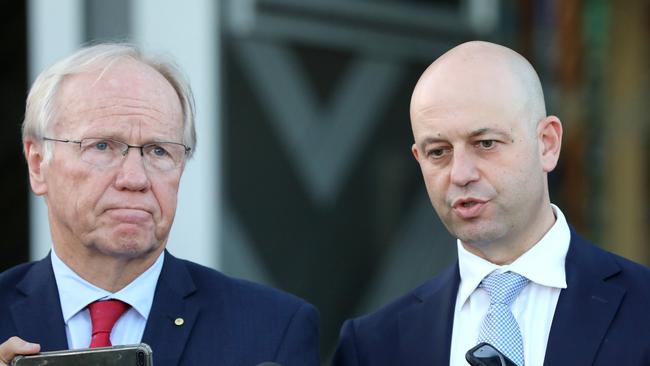
Dragons
Don't miss out on the headlines from Dragons. Followed categories will be added to My News.
INJURY: Storm prop’s lucky escape
LATE MAIL: English Test star to debut
The verdict emerged from Federal Court on Friday and drifted into the evening twilight.
Minutes earlier Federal Court judge Melissa Perry had ordered the NRL’s penalty against Jack de Belin, banned from playing until his aggravated sexual assault charge is finalised in court, must stand until the NRL’s new “no fault” policy is exhausted.
The ruling was sickening for de Belin. He believed he would be successful and that his career would be up and going again next week. He maintains his innocence.
Now this season is over and next season is questionable. There are now genuine concerns about his career given and his body wasting
Nobody could call themselves winners on Friday.
“This has not been a pleasant exercise for anybody but we had to make a tough decision,” said ARL Commission chairman Peter Beattie outside League Central.
“Our job isn’t a popularity contest. It’s to do the right thing by rugby league.”
But from the evening twilight comes opportunity.
It is an opportunity for the game to drag itself back from years of mistreatment. An opportunity to recover from layers of poor leadership headed by anaemic Commission that is only now finally delivering on the job it was employed to do.
An opportunity to take itself away from the lethargy that has seen the game drop ground to its biggest rival, the AFL.
It is an opportunity for healing, for growth in a difficult time.
The time for complacency is long gone, and the fight for the future is now.
More than a decade ago Andrew Demetriou sat in room with a big table filled with the smartest minds in AFL about to show what kind of boss he was.
There are two kinds of leaders, those for a time of war and those in times of peace and Demetriou, in this high level meeting, was born with stars on his shoulders.
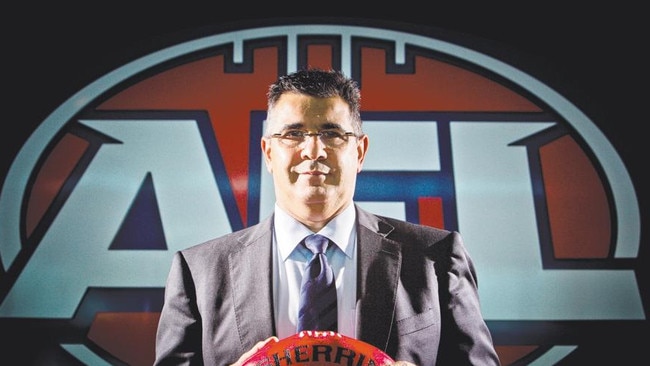
He told the AFL executive they were taking on rugby league. They were doing it on two fronts.
I spoke to a man in that meeting and he still remembers Demetriou’s speech. He remembers it so well he closed his fist and his speech slowed as he mimicked the cadence of Demetriou’s message.
“We’re going to take their land,” Demetriou told his men, “and we’re going to win the hearts and minds of the mums.”
Oh, you bet they got that right.
The AFL moved in to poor council areas and offered to take over dusty footy grounds where kids had kicked the surface bare. They offered a re-turf and to pay for a greenkeeper to mow and water and maintain the upkeep.
The councils, unused to charity, got suspicious. How much was this going to cost?
Nothing, said the AFL. The only condition was the councils must take down the rugby league posts and put up AFL posts.
All throughout rugby league heartland AFL posts began popping up. What else were kids going to do when they went down for an after school kick?
At the same time the AFL activated their players. They polished their image, acted swiftly when the news cycle turned bad, all their hard work to distance elite behaviour from the regular headlines rugby league was generating for itself.
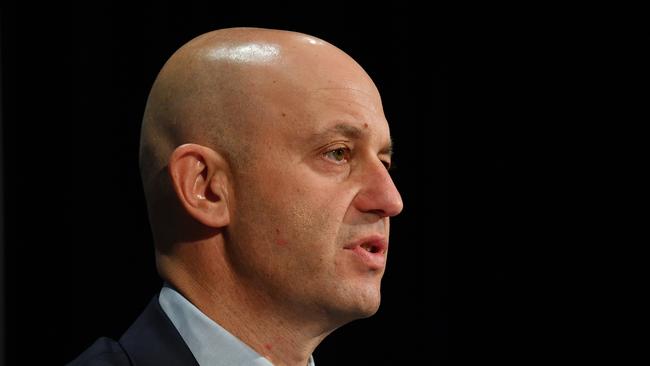
It meant nothing to the rusted on fans. The rusted-ons love their league and hate their AFL, or vice versa, and always will.
But AFL realised long ago that new borders are being built in the battle between codes, borders no longer restricted to state boundaries, and that in these new lands was a great number of children yet to be convinced.
And the key to them was mum’s support.
It’s often a topic of derision within the NRL, fans tired of the narrative, but the AFL knew this many years ago.
In 1994 I wrote of the AFL’s investment into grassroots rugby league areas. The AFL was spending $6 million, annually, on development funding in NSW and Queensland country.
The Australian Rugby League was spending a quarter of that, at $1.5 million. The fear was as real as the response was predictable.
The ARL dismissed the AFL’s challenge. They would never take over those areas, they chirped. The AFL was wasting its money.
Now? Well, now in too many country towns there are too many AFL grounds occupying too much prime position.
And so in the wake of Jack de Belin, who was not in court on Friday, the NRL pushes through another damaging period for the game with a clear intent that it is still not too late, that there is still opportunity.
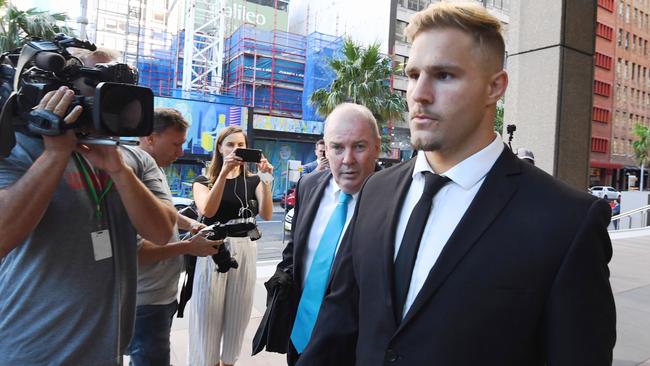
But it must start today. The NRL can no longer afford the luxury of arrogance or apathy.
De Belin’s ban happened in the same week that Foxtel, which owns Fox Sports which currently has a $1.8 billion broadcast deal with the NRL, reported operating losses for 2018 of $417 million.
Times are about to get tougher.
News Corporation, owner of Foxtel and the Telegraph, immediately notified the Australian Stock Exchange it would refinance its $1.68 billion debt and part of the restructure would be spending cuts to “non-marquee sporting content”.
That is merely buying time for what will be the follow on effect for the marquee sports like NRL and AFL.
The recent trend of broadcast rights doubling with every new broadcast cycle is dead.
The next rights will likely improve minimally, if at all, as viewing choices change. The money the game has for investment is about to flatline.
Smarter decisions will be the game’s greatest asset moving ahead.
Already the broadcast stress puts pressure on the NRL to find different revenue streams to grow the game.
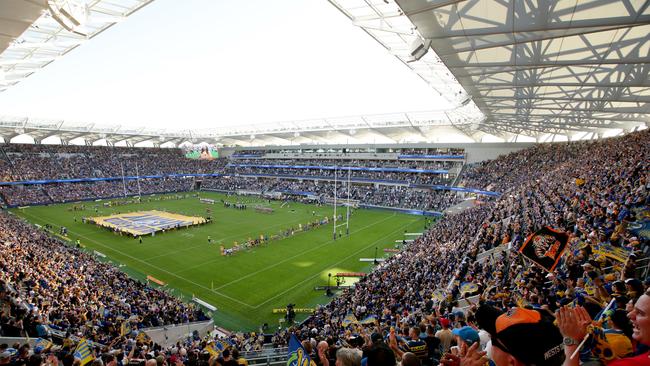
Most likely, what’s old will become new again.
The game will have no choice but to streamline its business and grow traditional streams it has let dwindle in the past, sponsors and gate takings and memberships.
It depends on reputation.
The NRL failed to settle on an amount lost in the wake of the summer just gone. It’s believed to hover somewhere between $20-$25 million.
Harder to count was the money saved from the sponsors who nearly walked away.
Major sponsor Telstra was on the verge of rescinding its naming rights sponsorship, worth $25 million. Much of the telco’s board lives in Melbourne and, not being rugby league lovers themselves, were simply not prepared to continue suffering the reputational embarrassment.
The loss could potentially have triggered an “adverse changes” clause which might have forced the salary cap to be renegotiated and forced every player to a pay cut next season.
The decision to stand down de Belin saved the sponsorship.
No winners emerged from this decision. There is the opportunity, though, that one day rugby league might be able to look back on a day few are proud of as the day the game finally began the fightback.



